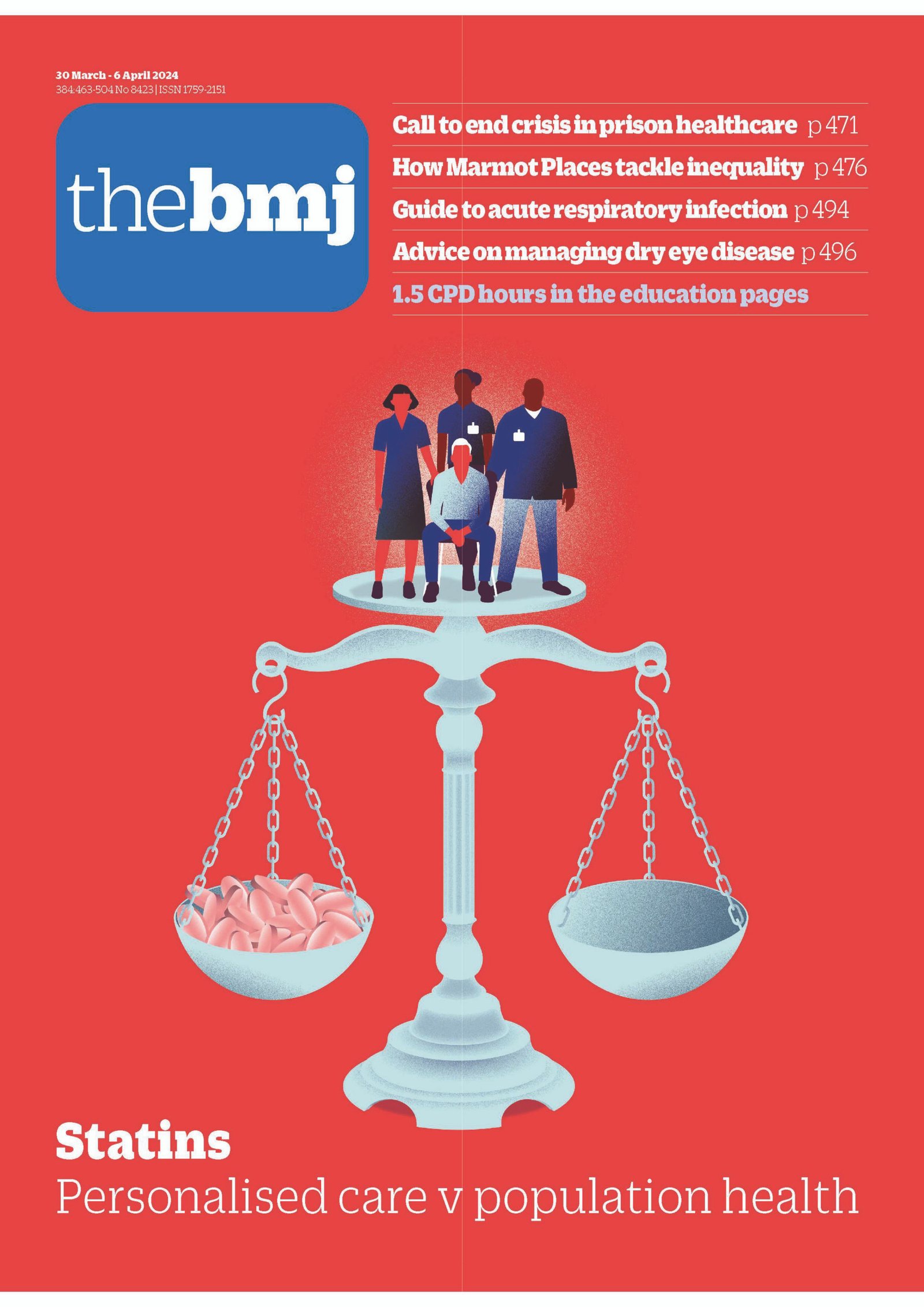A leading medical information company has been urged to cancel a series of new education courses on smoking cessation funded by the tobacco industry giant Philip Morris International (PMI).
Physicians and academics have rounded on Medscape for partnering with PMI on five courses launched in the past few months, and they have called for stricter oversight by certification bodies.
Anna Gilmore, professor of public health and director of the Tobacco Control Research Group at the University of Bath, UK, said that Medscape had “now lost all credibility and has some serious questions to answer. PMI lost all credibility decades ago, despite its ceaseless and highly misleading attempts to rehabilitate its image. It has now sunk to a new low.”

Medscape has temporarily taken down some of the courses while it carries out a review, but it told The BMJ that it had so far “found no evidence of deviation from Medscape’s strict quality and integrity standards.”
The outcry centres on the belief that the tobacco industry, with its harmful products and long history of biasing research, should have no connection to medical education. There is also concern about the content of these Medscape courses and the visibility and completeness of the disclosure of financial ties.
Critics said that the content tended to portray non-cigarette nicotine products as relatively harmless, therefore aligning with the commercial interests of PMI, which also sells e-cigarettes, nicotine pouches, and snus. Pamela Ling, director of the Center for Tobacco Control Research and Education at the University of California San Francisco, called the courses “appalling.”
“The support for the use of smokeless tobacco products and e-cigarettes in the content aligns with the corporate objectives of Philip Morris International,” she said. “The tobacco industry has an exceedingly well documented history of denying and distorting scientific evidence, and it has no place in medical education.”
“Worrisome precedent”
Nicholas Hopkinson, professor of respiratory medicine at Imperial College London, said, “The idea that lethal and immoral tobacco industry has a role in medical education is absurd.”
Robert Jackler, Sewall professor emeritus at the Stanford University School of Medicine in California, said, “I’ve been a physician for over 40 years. I don’t ever remember the tobacco industry sponsoring . . . certified physician education. My God!”
The courses amounted to a “worrisome precedent which, if not promptly halted, will no doubt be increasingly exploited by PMI and other tobacco corporations,” added Jackler, “in an effort to burnish tarnished reputations, to suppress healthcare opposition to their business goals, and to influence regulators.”
Medscape defended its reputation, saying through a spokesperson that its “top priority” was to provide “accurate, unbiased information for healthcare professionals.” It said that all education programmes followed standards set by the Accreditation Council for Continuing Medical Education (ACCME).
The spokesperson said, “All programmes are also extensively reviewed for fairness and accuracy by internal compliance teams of clinicians. In cases where funding for a programme is sponsored or supported by an outside party, those outside parties are clearly disclosed and have absolutely no input on a programme’s faculty or content, as is also the case with this programme.”
In response to the allegations a PMI spokesperson told The BMJ that the company “believes that a science based debate on the critical societal question of tobacco harm reduction is vital to improve public health.” Its educational grant was managed “completely independently” by Medscape, they added.
“Smoke free, not tobacco/nicotine abstinent”
The five courses in question are titled “Nicotine Misperceptions: What Does the Evidence Say?”1; “Smoking Cessation: Conversations in the Clinic”2; “Health Impact of Tobacco Products: What Do We Know in 2024?”3; “Harm Reduction from Tobacco: An Evidence Based Discussion”4; and “Smoking Cessation: What Works? What Doesn’t?”5 The courses were released in late February and March.
Tess Legg, research associate at the University of Bath, said that funding education for health professionals was “part of a wider plan to claw back some credibility for the tobacco industry which has seen its image take a nosedive, not least because of its decades long manipulation of science.”
Jackler said that the educational courses in question, as well as the communication around these non-cigarette products, intended to portray PMI as part of the solution and not the problem—a “hypocritical” stance, as the company was still heavily relying on its Marlboro flagship cigarette brand. He highlighted a slide of the courses that stated, “The health goal for all smokers should be smoke free, not tobacco/nicotine abstinent.”
Jackler commented, “Only purveyors of tobacco products would make such a ridiculous assertion. The health goal is not switching to another PMI product line but rather to break nicotine addiction and thus halt all use of tobacco products.”
Another course presents the case of Marco, a 41 year old man who smokes a pack of cigarettes a day and wants to reduce his cancer risk because his father smoked and recently died of lung cancer. The possible answers on what advice Marco should be given are to consider switching to smoking a pipe or e-cigarettes or reducing his smoking to a half a pack a day. Gilmore said, “Unbelievably, none of the options given include quitting smoking!”
Criticism on disclosures
On the Medscape website all courses are flagged with: “Supported by an independent educational grant from Philip Morris International”—but this support is not mentioned in the course slides and transcripts reviewed by The BMJ. Jackler said that this was problematic, as the course slides could be circulated independently.
There are also concerns about the financial ties to the tobacco industry of one of the course speakers, Brad Rodu, a professor of medicine and holder of a chair endowed by the US Smokeless Tobacco Company and Swedish Match North America (now owned by PMI). In a paper published in October 2023 Rodu stated that his “research is supported by unrestricted grants from tobacco manufacturers to the University of Louisville.” The University of Bath’s Tobacco Tactics project has collected multiple past connections to the tobacco industry6; however, the disclosure fields on Medscape’s website states that “Brad Rodu, DDS, has no relevant financial relationships.”
That statement was written by Medscape, Rodu told The BMJ. “When Medscape staff asked, I told them that the most recent unrestricted grant from a tobacco company to the University of Louisville ended in 2018,” he said.
In response, Medscape said that according to the ACCME standards it doesn’t need to disclose financial relationships if they don’t concern a healthcare company or are older than two years.
“Disappointing” lack of funding ban
ACCME’s president and chief executive officer, Graham McMahon, told The BMJ that the accreditation council doesn’t ban education content paid for by the tobacco industry as long as providers “follow the rules to ensure the content is protected from bias and influence, and the provider discloses the support to the learners, among other requirements.”
Jackler said that he was “disappointed” by the lack of a ban and called for action to introduce one.
After The BMJ reached out to Medscape last week some of the courses were taken down, stoking hope among protesters that they had been successful. However, Medscape’s spokesperson said, “Per Medscape’s standard operating procedures, if any inquiries are received about educational content, it is temporarily removed from public access so that it can be thoroughly re-reviewed. This secondary review is nearing completion and has found no evidence of deviation from Medscape’s strict quality and integrity standards in alignment with the ACCME standards for integrity and independence in accredited continuing education.”
Hopkinson said that “a swift apology and promise to review policies to make sure that it never happens again will bring the episode to a close.” But he added that, if Medscape were to put the courses back up, there “would be a rapid global boycott by healthcare professionals disgusted by their behaviour.”









